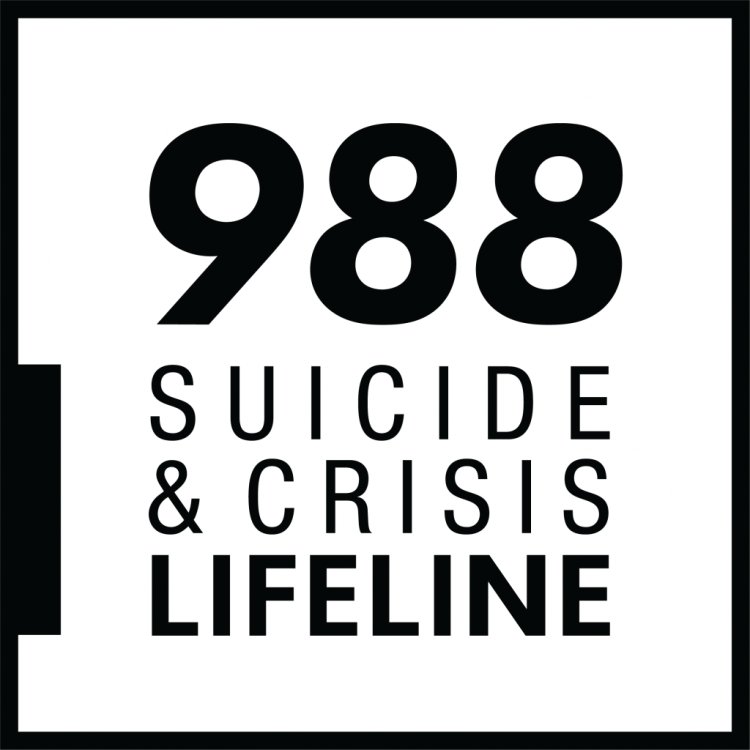Understanding Suicide: Seeking Help and Finding Hope

Suicide is a deeply concerning and complex issue that affects countless individuals and families worldwide. It's a topic that we need to address openly and honestly, as doing so can save lives. This blog post aims to shed light on the various aspects of suicide, including its causes, warning signs, and, most importantly, how to seek help. Remember that there is hope, and support is available for those who need it.
- Understanding Suicide
Suicide is a tragic and profound act with deep psychological, emotional, and societal implications. It is vital to understand the complex nature of suicide to combat its prevalence effectively. There are numerous factors that can contribute to suicidal thoughts, including:
a. Mental Health Issues: Many individuals who contemplate or attempt suicide suffer from mental health conditions such as depression, anxiety, bipolar disorder, or schizophrenia.
b. Social Isolation: Loneliness and a lack of social support can lead to feelings of hopelessness, which may precipitate suicidal thoughts.
c. Past Trauma: Childhood abuse, neglect, or past traumatic experiences can be a triggering factor.
d. Substance Abuse: The use of drugs or alcohol can exacerbate suicidal tendencies, as they can impair judgment and increase impulsivity.
e. Access to Lethal Means: Easy access to firearms, medication, or other means of self-harm can increase the risk of suicide.
- Warning Signs
Recognizing the warning signs of suicide is crucial in offering help to those in need. Some common indicators include:
a. Verbal Cues: Expressing a desire to die, feeling hopeless, or saying goodbye to loved ones.
b. Behavioral Changes: Sudden changes in behavior, withdrawal from social activities, or giving away possessions.
c. Emotional Distress: Persistent feelings of sadness, despair, or anxiety.
d. Drastic Mood Swings: Unexplained mood swings, rage, or increased agitation.
e. Physical Symptoms: Changes in sleep patterns, appetite, or neglect of personal hygiene.
- Seeking Help
If you or someone you know is struggling with thoughts of suicide, it's crucial to seek help immediately. Remember, you're not alone, and there are numerous resources and support networks available:
a. Hotlines: National suicide prevention hotlines, such as the National Suicide Prevention Lifeline (1-800-273-TALK), are available 24/7 to provide immediate assistance and support.
b. Mental Health Professionals: Reach out to a therapist, psychiatrist, or counselor who specializes in suicide prevention and mental health.
c. Support Groups: Consider joining a local or online support group, where you can connect with others who have experienced similar challenges.
d. Trusted Friends and Family: Share your thoughts and feelings with someone you trust, as they can provide emotional support and help you access professional help.
e. Crisis Text Lines: Text-based crisis lines are available, providing a discreet way to seek help.
- Stigma and Misconceptions
One of the major obstacles to seeking help for suicidal thoughts is the stigma surrounding mental health issues. It's essential to debunk common misconceptions, such as:
a. Weakness: Mental health challenges are not a sign of weakness. They are real medical conditions that can affect anyone.
b. Shame: There is no shame in seeking help for your mental health, just as you would for a physical ailment.
c. Unpredictability: People who are suicidal may not always show obvious signs, making it essential to be proactive in seeking support.
- Building Resilience and Hope
Recovering from suicidal thoughts and actions can be a long and challenging journey. However, there is hope. Developing resilience and a strong support system can make a significant difference. Here are some strategies to consider:
a. Therapy and Treatment: Professional help, including therapy and medication, can address underlying mental health issues.
b. Self-Care: Prioritize self-care practices such as exercise, mindfulness, and adequate sleep.
c. Strong Relationships: Cultivate meaningful connections with friends and family to build a support network.
d. Safety Planning: Develop a safety plan to manage and mitigate suicidal thoughts and actions.
e. Setting Goals: Work towards setting achievable and meaningful goals to regain a sense of purpose.
Resources
-
National Suicide Prevention Lifeline: This is a 24/7, toll-free hotline for anyone in the United States. You can call 1-800-273-TALK (1-800-273-8255) for immediate help. The Lifeline connects you with trained professionals who can provide assistance and support.
-
Crisis Text Line: You can text "HOME" to 741741 to connect with a trained crisis counselor via text message. This service is available 24/7 and provides a confidential and text-based way to seek help.
-
SAMHSA's National Helpline: The Substance Abuse and Mental Health Services Administration offers a 24/7 helpline at 1-800-662-HELP (1-800-662-4357). It provides free and confidential information, treatment referrals, and support for mental health and substance abuse issues.
-
Local Mental Health Services: Reach out to your local mental health agency or community mental health center. They can provide information about counseling, therapy, and other mental health services available in your area.
-
Online Support Groups: Various online platforms offer support groups for people dealing with mental health issues. Websites like 7 Cups and Psych Central have forums and chat rooms where you can connect with others and share your experiences.
-
Psychiatrists and Therapists: If you prefer one-on-one help, consider seeking a psychiatrist or therapist. You can find professionals specializing in mental health in your area through online directories or by asking for recommendations from your primary care physician.
-
Nonprofit Organizations: Many nonprofits focus on mental health support. Organizations like NAMI (National Alliance on Mental Illness) provide information, education, and support for individuals and families dealing with mental health challenges.
-
University Counseling Centers: If you're a student, your university likely has a counseling center with trained professionals who can assist you with mental health concerns.
-
Employee Assistance Programs (EAPs): Many employers offer EAPs, providing confidential support services to employees and their families. Check with your HR department to see if your workplace offers this resource.
-
Telehealth Services: In recent years, telehealth services have become increasingly popular. You can receive therapy and counseling online or through phone calls, making mental health support more accessible and convenient.
-
Religious or Spiritual Leaders: Some people find comfort in speaking with their religious or spiritual leaders. They can provide guidance, support, and resources, especially if you have a strong faith community.
-
Friends and Family: Don't underestimate the power of confiding in loved ones. Sharing your thoughts and feelings with friends and family can be a crucial first step in seeking help. They can also assist in connecting you with professional resources.
-
Apps and Self-Help Tools: There are various mental health apps and self-help tools available that offer coping strategies, meditation, and mood tracking. Examples include Headspace, Calm, and MoodTools.
For our Veterans
Supporting our veterans is of utmost importance, as they may face unique challenges that require specialized assistance. Here are some resources specifically tailored to veterans who may be struggling with suicidal thoughts or other mental health issues:
-
Veterans Crisis Line: This is a 24/7 crisis hotline for veterans. You can reach out by calling 1-800-273-8255 and pressing 1. You can also text 838255 or chat online at VeteransCrisisLine.net. The Veterans Crisis Line offers immediate help from professionals who understand the unique challenges veterans face.
-
VA Mental Health Services: The U.S. Department of Veterans Affairs provides comprehensive mental health services, including therapy, counseling, and support for veterans. You can find your nearest VA facility and learn more about their mental health services at VA Mental Health.
-
Vet Centers: Vet Centers offer a broad range of counseling, outreach, and referral services to combat veterans. Find a Vet Center near you at VA Vet Centers.
-
Wounded Warrior Project: This organization provides programs and services for veterans dealing with physical and mental health challenges. They can be reached at 1-877-832-6997 or by visiting their website at Wounded Warrior Project.
-
Team Red, White & Blue: This organization connects veterans to their communities through physical and social activities, fostering a sense of belonging and support. Learn more at Team Red, White & Blue.
-
Give an Hour: This nonprofit organization offers free mental health services to veterans and their families. Find a provider or learn more at Give an Hour.
-
Operation Enduring Warrior: This organization focuses on improving the physical, mental, and emotional well-being of wounded veterans. Visit their website at Operation Enduring Warrior.
-
Cohen Veterans Network: Providing mental health care to veterans and their families, this network offers clinics across the United States. Find a clinic near you at Cohen Veterans Network.
-
National Alliance on Mental Illness (NAMI) Veterans and Active Duty: NAMI offers specialized resources and support for veterans and active-duty military personnel. Visit their Veterans and Active Duty page at NAMI Veterans.
-
Military OneSource: This resource provides information, support, and counseling to service members and their families. Visit Military OneSource for more details.
Remember, seeking help is a sign of strength, and there is a vast network of support available to veterans. Whether it's for mental health concerns, readjusting to civilian life, or any other challenges, these resources are designed to assist and provide the care and support veterans deserve. If you or someone you know is a veteran struggling with suicidal thoughts or mental health issues, please reach out to these organizations for the help and guidance you need.
What's Your Reaction?





















